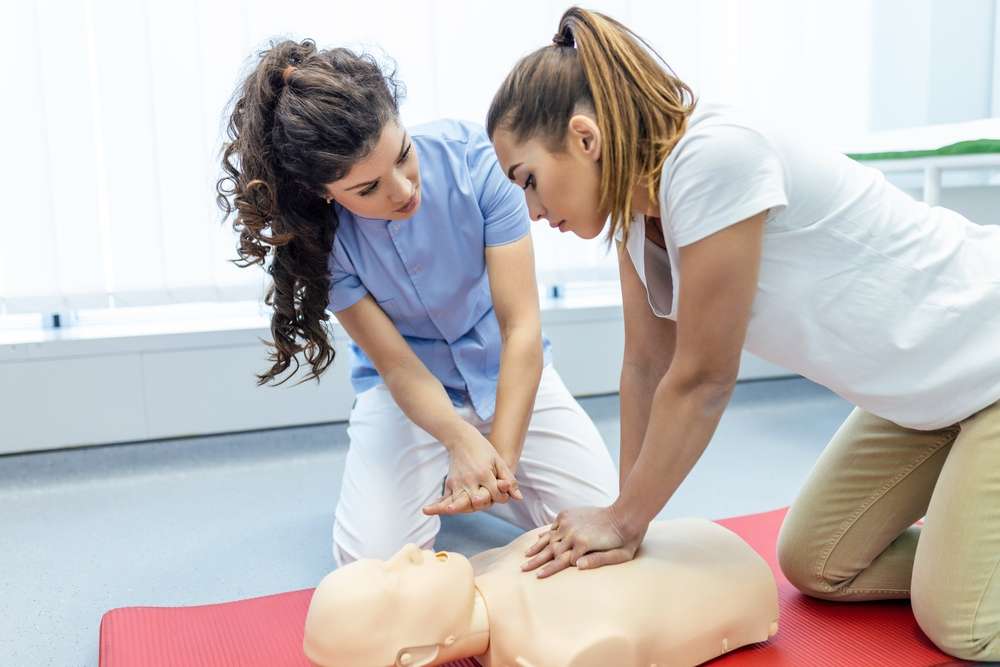Explore Medical Assistant Training Options Across Switzerland
In Switzerland, the demand for skilled medical assistants is on the rise, making training in this field an appealing option. With comprehensive programs available, individuals can gain essential skills needed in various healthcare settings. Medical assistant training covers both administrative and clinical responsibilities, preparing students for a rewarding career in the medical field.

Medical assistants play a vital role in healthcare settings across Switzerland, supporting physicians, nurses, and other healthcare professionals in delivering quality patient care. Whether working in hospitals, private clinics, or specialized medical facilities, these professionals handle administrative tasks, assist with clinical procedures, and ensure smooth daily operations. For individuals interested in entering this rewarding field, understanding the training landscape is essential.
Understanding the Role of a Medical Assistant in Healthcare
Medical assistants serve as the backbone of many healthcare facilities, performing a wide range of duties that bridge administrative and clinical responsibilities. On the administrative side, they manage patient records, schedule appointments, handle billing and insurance documentation, and coordinate communication between patients and healthcare providers. Clinically, medical assistants may take vital signs, prepare patients for examinations, assist during procedures, administer medications under supervision, and maintain medical equipment. In Switzerland, the role is often formalized under the title of Medical Practice Assistant (Medizinische Praxisassistentin/Medizinischer Praxisassistent), requiring specific training and certification. The profession demands strong interpersonal skills, attention to detail, and the ability to multitask in fast-paced environments. Understanding these responsibilities helps prospective students evaluate whether this career path aligns with their interests and strengths.
Key Components of Medical Assistant Training Programs Available
Medical assistant training in Switzerland typically follows a structured apprenticeship model, which is a hallmark of the Swiss vocational education system. The standard pathway is a three-year dual education program (Berufslehre/apprentissage) that combines practical on-the-job training in medical practices or healthcare facilities with theoretical instruction at vocational schools. Students learn medical terminology, anatomy and physiology, pharmacology basics, patient care techniques, administrative procedures, and healthcare regulations. Training also covers communication skills, hygiene standards, and the use of medical technology. Upon completion, candidates receive a Federal VET Diploma (Eidgenössisches Fähigkeitszeugnis EFZ), which is recognized throughout Switzerland. Some cantons and institutions also offer full-time school-based programs or bridging courses for career changers. Additionally, continuing education opportunities exist for certified medical assistants who wish to specialize in areas such as radiology assistance, laboratory work, or practice management. The comprehensive nature of these programs ensures graduates are well-prepared for the diverse demands of the profession.
Career Pathways and Opportunities for Medical Assistants in Switzerland
The healthcare sector in Switzerland offers numerous career opportunities for qualified medical assistants. Graduates can find employment in general practitioner offices, specialist clinics, hospitals, rehabilitation centers, diagnostic laboratories, and pharmaceutical companies. The aging population and ongoing demand for healthcare services contribute to steady employment prospects in this field. Medical assistants can advance their careers through specialization, taking on roles with greater responsibility such as practice coordinators, team leaders, or specialized clinical assistants. Some choose to pursue further education, transitioning into nursing, healthcare administration, or other allied health professions. The profession also offers flexibility, with opportunities for part-time work, which is particularly common in Switzerland. Networking through professional associations and staying current with continuing education enhances career development. While specific salary information varies based on experience, location, and employer, medical assistants in Switzerland generally earn competitive wages within the healthcare support sector. Career satisfaction often stems from the meaningful patient interactions and the essential support role these professionals provide in healthcare delivery.
Training Institutions and Program Providers
Several institutions across Switzerland offer medical assistant training programs, each with distinct features and regional availability. Vocational schools (Berufsfachschulen) in various cantons provide the theoretical component of apprenticeship programs, while medical practices and healthcare facilities offer the practical training placements. Some notable providers include cantonal vocational education centers in Zurich, Bern, Geneva, and other major cities. Private institutions and specialized healthcare training centers also offer preparatory courses and supplementary training. The Swiss Association of Medical Practice Assistants (SVA) provides resources, guidance, and support for both students and practicing professionals. When selecting a training program, prospective students should consider factors such as program structure, location, support services, and the reputation of partnering healthcare facilities. Researching multiple options and connecting with current students or graduates can provide valuable insights into program quality and outcomes.
Admission Requirements and Application Process
To enroll in a medical assistant training program in Switzerland, candidates typically need to have completed compulsory education (usually nine years of schooling) and possess good academic performance, particularly in sciences and languages. Strong communication skills in the local language (German, French, or Italian, depending on the region) are essential, and proficiency in additional languages is advantageous given Switzerland’s multilingual population. The application process for apprenticeships involves searching for available training positions with medical practices or healthcare facilities, submitting application documents including a CV and cover letter, and attending interviews. Some employers may require aptitude tests or trial work periods. School-based programs may have different admission criteria and application timelines. Starting the application process early, typically one to two years before the desired start date, is recommended due to competition for positions. Candidates should demonstrate genuine interest in healthcare, reliability, and a professional attitude during the selection process.
Continuing Education and Professional Development
Once certified, medical assistants in Switzerland have access to various continuing education opportunities that support career advancement and skill enhancement. Professional development courses cover topics such as advanced clinical techniques, specialized medical software, patient communication strategies, and healthcare regulations updates. Some medical assistants pursue additional certifications in areas like phlebotomy, electrocardiography, or medical coding. The Swiss vocational education system also offers higher professional education pathways, including specialized diplomas and federal professional examinations that can lead to senior roles or transitions into related healthcare professions. Attending workshops, conferences, and seminars organized by professional associations helps practitioners stay current with industry developments and expand their professional networks. Employers often support continuing education through time allowances and financial assistance, recognizing that ongoing learning enhances service quality and employee satisfaction. Commitment to lifelong learning is valued in the Swiss healthcare system and contributes to long-term career success.
Medical assistant training in Switzerland provides a solid foundation for a meaningful career in healthcare. With structured programs, diverse opportunities, and strong professional support, aspiring medical assistants can build rewarding careers that make a real difference in patient care and healthcare delivery.
This article is for informational purposes only and should not be considered medical advice. Please consult a qualified healthcare professional for personalized guidance and treatment.




